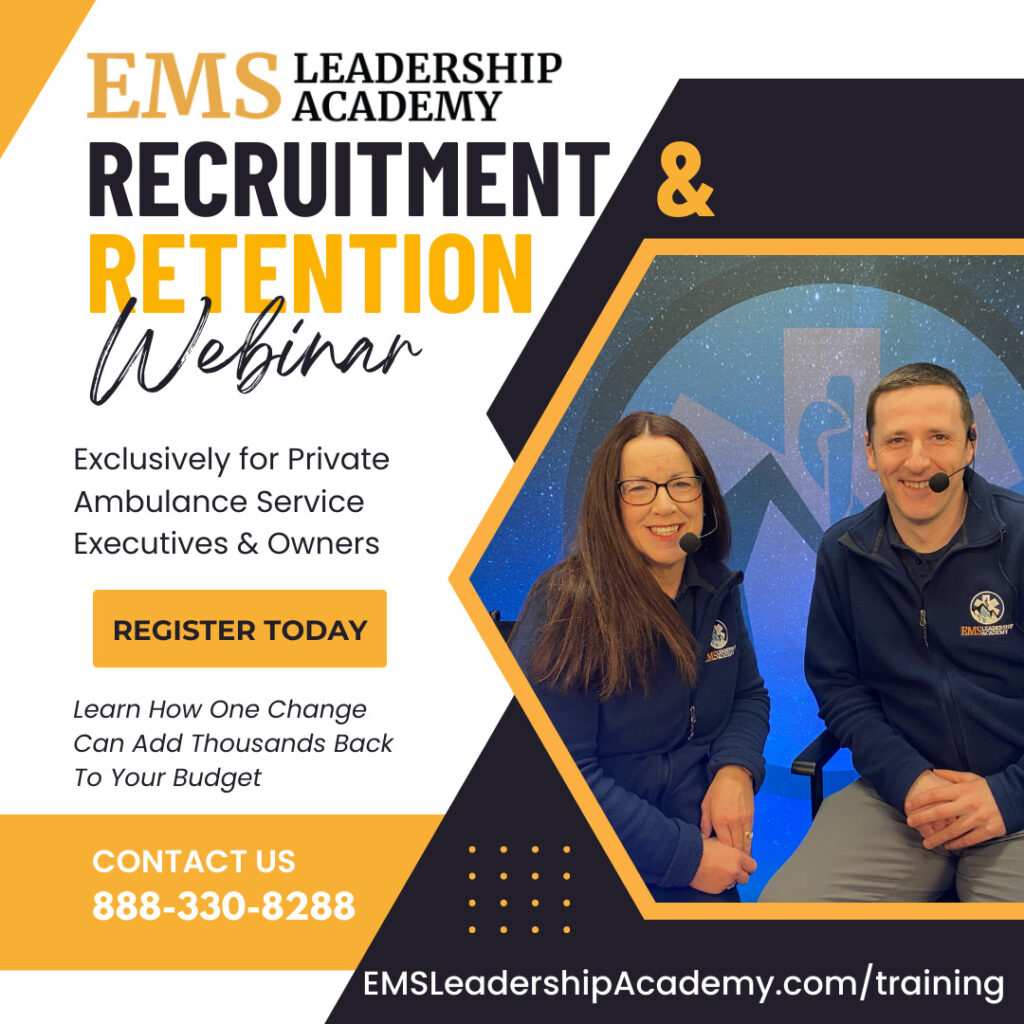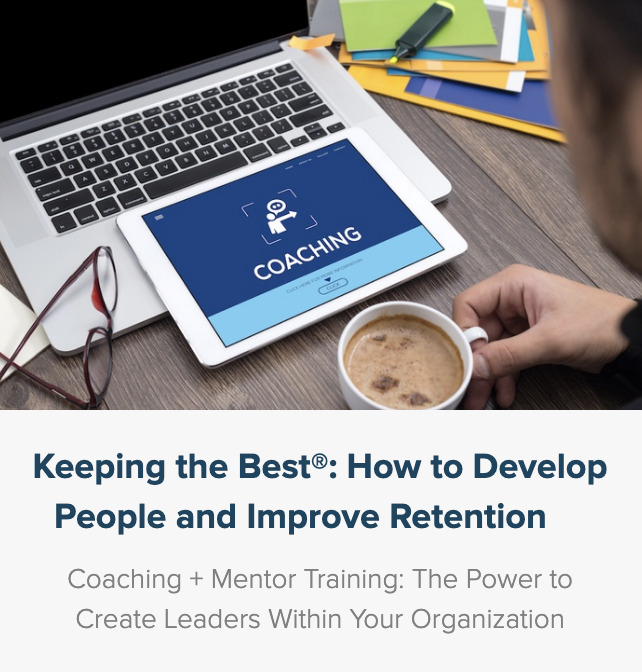- Plan on them leaving. If you know how to grow a great employee you are not afraid or worried when someone leaves. Structure for developing people
- Develop a bench of capable people, invest in their leadership development. Think about what they are getting out of being with the organization?
- Think about the kind of organization you’d like to be a part of (or create). What’s your ideal look like? Get curious about what’s important to your people from Day 1 and help them achieve it. People tend to stay where they feel cared for and appreciated.
- Recommended resource for addressing recruitment & retention issues:
Keeping the Best online training www.emsleadershipacademy.com/KTB
Welcome to today's EMS leadership, Q&A. And we've got a really great question here. What do you do if your best people leave? Pretty insightful question. I think when you, what, if you looked at your organization as an and prepared for people to leave you planned on people leaving and then got pleasantly surprised when a lot of people stuck around,
I think that would be a great outlook to try on. So if you know how to grow a great employee, a great employee, you're not afraid or worried when someone leaves and structures, what structures do you have in place for developing other people in your organization? People, whether you like to think this way or not, they need to be getting something out of being a part of your organization and doing what they're doing.
Yes. Antigen, if you just developed a bench of capable people, right. And you invest in their leadership development, they're getting something out of this, you're developing stronger leaders for your future. And really just think about what are they getting, like we said before, out of being part of your organization. Yeah. That's so important. And I think that unfortunately,
most of the time people think one of two things, well, I'm paying you and that's what you're getting out of our organization. Or if it's a volunteer organization, it's like, well, you, you know, you're helping us out. And you know, people don't give up their time and you know, basically their hours of life strictly for money,
you know, it's a, it's a, it's not even exchange. So I think it's really boils down to what kind of organization would you like to be a part of and what kind of an organization do you want to create? You know, if you think about what's your ideal and get others involved, you know, get curious about what's important to the people that you have.
And I, you know, I think from day one, if not before in our interview process, but certainly from day one, you have to have an idea of what's important to the people who are coming on board and what can they contribute to the organization and find out what's what they want to like their future path and help them to achieve it because people tend to stay where they feel cared for and appreciated.
But again, if you're creating an environment where people grow, where people develop and you, you know, moving on to the next level is just what you guys do. You're going to have such an attractive organization. People are going to want to be a part of it. And so it won't when someone leaves it will be a celebration versus a problem like,
Oh my God, what do we do? It'll be a celebration because you were part of that growth and development. And there's someone behind them. That's, you know, being, being nurtured and grown as well. It's a different, completely different way of thinking. And, you know, it starts with creating structures in your, do you have a budget for training and developing people?
That's a structure, you know, do you have programs that are associated with that, that investment? And, you know, are you measuring the Results? You know, I, I, you know, structure drives behavior and you have to be willing to have a budget line for people maintenance and growing and developing people. And this is why we created keeping the best,
right? This is one of the, the main drivers and reasons behind everybody says they want more recruitment and retention training. How do I have better recruitment and retention? What I think most people we've talked about this at length, they focus so much on the recruitment. They're not thinking about the retention. And we pose the opportunity to flip that equation, to focus on the retention and creating that organization that people want to be a part of where they feel developed.
And then your recruitment efforts will be a natural byproduct and there'll be much more efficient. Yeah. And keeping the best is an online program that you could do at your own pace. But there's lots of great exercises. If I do say so myself, that we created that you can do, you know, after each unit. So you can, you can experiment with them.
And, and, you know, from basically day one of taking the course, you're going to start seeing a different result and you don't have to wait until the, you know, you finish the program to begin to see the results. Absolutely. And, and we've said it before to be a good leader is to be a good coach. That's what this program is about.
You've brought some of the best coaches together to develop this coaching volt. If you would say at the end of these bonus materials of how do you coach people through difficult situations. And I think you brought some of the best of the best folks in there to do short little segments and, and it's, it's really a great value. So if you have a question to submit,
we'd love to hear from you. You can send it over to support@emsleadershipacademy.com or you can leave us a voicemail, (888) 330-8288. We'd love to hear from you. Thanks everyone for watching.



